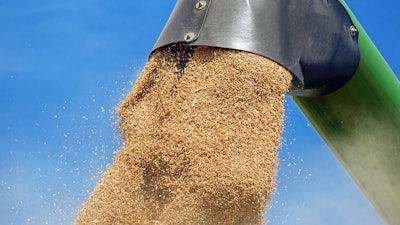
The U.S. Department of Agriculture (USDA) has announced the creation of the Commodity Storage Assistance Program, a $140 million initiative designed to help farmers access essential storage facilities for their crops following severe weather events in 2024. This program is part of a broader effort to support agricultural producers impacted by natural disasters, particularly in the Southeast region affected by Hurricanes Debbie, Helene and Milton.
Agriculture Secretary Tom Vilsack emphasized the program's importance, stating, "These programs come at an especially critical time for southeastern farmers, who will face a difficult and long recovery after this season's devastating hurricanes."
The Commodity Storage Assistance Program will provide funds to help producers gain access to packinghouses, grain elevators, and other facilities necessary for the orderly marketing of agricultural commodities. This initiative builds upon the Emergency Grain Storage Assistance Program, which addressed similar needs following tornadoes, derechos, and flooding in 2021 and 2022.
To be eligible, producers must demonstrate that natural disasters caused a loss in commercial storage or marketing capabilities. The USDA anticipates high signup rates in the Southeast due to the recent hurricane damage, but the program is available to farmers nationwide facing disaster-related challenges.
The funds for this program will come from the Commodity Credit Corporation and will cover a wide range of commodities. Applications are expected to be available in December 2024, with final details on eligibility and payment rates to be released in a forthcoming Notice of Funding Availability.
This program is part of a comprehensive package of disaster assistance measures, including the Marketing Assistance for Specialty Crops initiative and extensions for various existing USDA disaster relief programs. Together, these efforts aim to provide crucial support for American farmers as they recover from the impacts of severe weather events and continue to play their vital role in the nation's food supply chain.
.jpg?auto=format%2Ccompress&crop=faces&fit=crop&h=48&q=70&w=48)

















